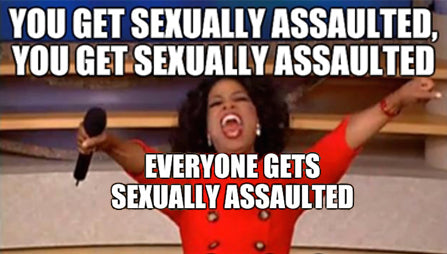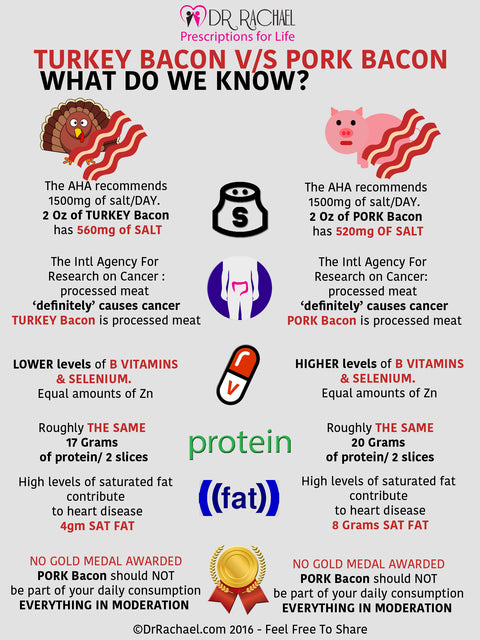We’ve heard the sexual harassment allegations. Now we need to hear from the women who sucked some of these powerful men off. The ones who ultimately went on to become millionaires and starlets. We’ve heard some of the tragic tales from women that powerful men have sexually harassed and assaulted. They’ve ultimately walked away with nothing more than a few payoff dollars and emotional scars. Let’ also hear from the women who willingly did everything they were told to do and never ever got the job, the raise, or a callback.
Let these women tell their stories and put it all on the table so that we can discuss why we have a hard time differentiating between sexual assault and sex for favors. The roadblock to a cultural shift away from sexual harassment is our inability to agree on what it means to choose. Simply put, if there had not have been a line of women who willingly chose to have sex with the Harvey Weinsteins, pretending to like them, and flattering them with a bunch of mistruths, all in the name of career enhancement; then there might not have been so many other women assaulted by these men.
People snicker in disbelief at the volume of sexual harassment complaints and at the details that surround all of the recent allegations. The world struggles with the concept of choice. Lupita N’yongo gave us a detailed account of her experience with Harvey. She chose not to exchange sexual favors for career advancement. He told her that she was committing career suicide by not sucking him off, and she still walked away. He told numerous other women that the actresses who became stars through his movies all did it the same way. That day, Lupita N’yongo chose to walk out on a million dollar blowjob at a time in her career when she was likely struggling to pay her bills. How did she find the power to choose and the power to walk away, when so many others felt like they had no power and no choice.
The Choice Factor
Did the women who came forward with complaints of sexual harassment and/or sexual assault have a choice, or did they not? Did Lupita have a choice or did she not? Is the conversation and the outrage about men that abuse of power all about a perception of choice, or is it about real choices? These are the questions that America struggles to understand, and that’s the dialogue that’s missing from this conversation. When you feel as though you have no choice, is that the same thing as not having a choice? When you feel as though your career will go nowhere if you don’t give someone a blowjob, is that the same as being locked in an office or forced to perform sex acts under physical distress?
The Hollywood Casting Couch
When being interviewed about the Hollywood casting couch, Marilyn Monroe so famously said that, ‘I spent a great deal of time on my knees. . .if you didn’t go along, there were twenty-five girls who would.’ Although it is a real tragedy, oftentimes it’s still a choice. She went on to say in the same interview that aspiring starlets who put time in on the couch absolutely, “deserve everything they can get. . . Some of those men are such horrors!” Now we get a chance to see exactly what she meant.
Ben Lyon, a casting director at 20th Century Fox, would send Marilyn Monroe around to his colleagues with a letter of introduction that she later found out read, ‘this girl really likes giving head.’ When starlets start to speak out, and share the lengths they have gone through in order to be in the business, and we actually start to take their stories seriously, then, and only then, can this movement have any real and lasting impact. Perhaps that’s when empathy will start to kick in and people will begin to understand just how thin the line between choice and the perception of choice actually is. For Marilyn, she spent all of that time on her knees, in exchange for all of the glamour, and then ultimately succumbed to the darkness that followed.
Something is Missing Here
The current conversation isn’t fair, it isn’t honest, and it’s missing something. Where is the dialogue about choice, the perception of choice, and power? We need to understand the inner thoughts and the surrounding context of these stories: Stories narrated from women who vomited after they did it because they felt they had to. Those Ladies who shut their eyes and imagined they were back home. Young girls who let them climb on top of them over and over again who were focused on the dream of paying off their family’s bills. The girls they did not call back and who never got what they were promised, and even the ones who discussed the career pros and cons with their loved ones before they decided to do it.
We also need to hear from the perpetrators, the Harvey Weinsteins. What were they thinking? How did this become the norm? Do they have daughters? Are they remorseful? Do they understand that what they did was actually wrong? We need a clear picture of power and choice, both perceived and real.
Sexual Assault Victims are Ten Times More Likely to Use Drugs
When starlets and entertainers come forward, we have to take their stories seriously. Then we need to ask them some hard to fathom questions. In a brave move, that barely made a blip in popular media, former Pussy Cat Dolls member Kaya Jones came forward to allege that the former group was actually an upscale prostitution ring and that their management, led by other women, pimped them out to different industry execs.
How many other famous singing groups experience similar types of terror? Former child stars like Corey Feldman are coming forward to speak out about all of the ways in which they were abused and the people that abused them. It is no longer a wonder why child entertainers so often succumb to drugs, alcohol, and suicide. Statistics demonstrate that people who are sexually assaulted are ten times more likely to use drugs, and 33% of female rape victims have contemplated suicide.
Actor Terry Crews bravely filed a sexual assault lawsuit against a Hollywood agent for groping him in public, as a way to fight for dignity in Hollywood. These stories need to be acknowledged and they deserve to a national platform. We need to understand how choice and power played into each situation. These stories can then educate and elevate our thoughts on the topic. We all have loved ones that long to be part of Hollywood’s elite. We need to help them understand that at some point they will have to choose. They can scream, kick, fight, or politely walk away, and risk the chance to never work another day in Hollywood; or they can stay and spend years haunted by the demons and ruminating thoughts of sexual assault.
Sexual Assault v/s Having Sex For Favors
So when is it sexual assault and when is it an exchange of sex for favors? When is it sexual harassment and when is it the same creep that would’ve hit on you at the bar? Is it still sexual assault if the victim reaps a career benefit? Is it still sexual assault if you now get $7 million dollars anytime you star in a movie? Well it absolutely is.
Sexual harassment from a person in a powerful position is an illegal abuse of power. As a media professional, I can sit in on someone’s television program and blab on and on about it. I can answer all of those questions until I am blue in the face. However, until the conversation becomes a little more balanced, the people who need to hear me, absolutely will not. They will simply turn the station and think, “well, why did she go to his hotel room then??”
The perception of choice and power is part of it, but let’s talk about another role that women play in creating a monster. Boys learn early at home and at school that they can mistreat girls without reprimand. They punch and hit girls, and the girls taught to be ok with it. “Little boys do that because they like you.” We train girls early to give boys a pass. The real message is, take the assault and be happy about it because he likes you! ’Boys will be boys.’ Unfortunately most of that talk comes directly from the most trusted women in our lives. These are some of the earliest groomings for the power dynamic that exists to allow sexual harassment to thrive.
The Role Women Play in Creating Men Who Assault Women
Then there are the much more subtle ways to program a monster. With the best intentions in the world, you can teach your sons humility and kindness. However, the moment he witnesses any man abuse the women and or the girls in his life, and get away with it, we know for a fact that it plays out into his adult life. Daddy grabs mommy and shakes her: Shaking women is ok. Pop cusses mommy out and ignores her: Women are worthless. Father flirts with the lady at Starbucks every Saturday, Women are toys. Daddy criticizes everything that mommy does: Women can’t do anything right. The damaging result: Mom is weak and disgusting for letting dad treat her like that, I hate her! Mom cannot raise a son that respects women if the men in her life disrespect her.
The cultural tradition of sexual harassment at the workplace has been the norm since women entered the workplace. In order to change it we need to hear and discuss all sides of the story. It’s easy to call these men monsters and make them retreat into expensive caves of shame. Let’s instead opt for change. Let’s invite these men to the TV couches and hear them out. Even if we know we aren’t going to like what they have to say.



